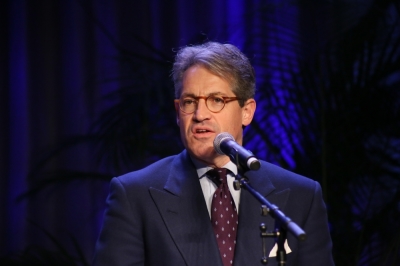Millennials and the Bible: Live Out the Faith So They Can Relate
Earlier this year, I told you about some of the challenges in reaching Millennials for Christ, that is, young adults aged roughly 18 to 33. While 55 percent of Baby Boomers say they're religious, only 36 percent of Millennials do. "Today," University of Virginia sociologist W. Bradford Wilcox notes, "fully 29 percent of Millennials consider themselves religiously unaffiliated, a record postwar high. They are also much less likely to describe themselves as 'religious' compared with earlier generations of Americans."

Well, how is this rising generation connecting to the Bible? In a word, poorly. According to a new study by the Barna Group, "Non-Christian Millennials hold ambivalent and sometimes extremely negative views about the Bible."
How negative? The first thing to know is that a full 62 percent of non-Christian Millennials have never even read the Bible. Friends, that's the kind of world in which we live—one with tremendous ignorance of God's Word. It's no wonder that the nation has gone so far downhill, so fast, because we can't expect people to live like Christians if they aren't Christians, and especially if they don't even have a passing acquaintance with the Scriptures.
Non-Christian Millennials' unfamiliarity with the Bible, however, has not kept them from forming an opinion on it—an extremely negative one. Barna says that nearly half believe "the Bible is just another book of teachings written by men that contains stories and advice."
The most common words they use to describe the Bible are "story," "mythology," "symbolic," and "fairy tale." Fully 30 percent of Millennials allow that it's a useful book of moral teachings, but nearly as many—27 percent—agree that the Bible is "a dangerous book of religious dogma used for centuries to oppress people."
Almost one in five say the Bible is "an outdated book with no relevance for today." I don't know about you, but those numbers kind of make me want to weep.
Although we obviously have a long way to go to overcome this prejudice, I'm glad to say that the survey gives us some pointers on how to do it—and how not to do it.
First, how not to do it: Barna suggests reading your Bible around a non-Christian Millennial is not likely to spark much spiritual interest—the opposite, in fact, is more likely to be true. According to Barna, "When they see someone reading the Bible in public...they assume the Bible reader is politically conservative...; that they don't have anything in common with the person...; that the Bible reader is old fashioned...or that [he or she is] trying to make a statement or be provocative....Fewer than one in 10 non-Christian young adults indicate any kind of positive response."
So what is a more effective approach among this group? According to Barna, "personal interactions" with people who have benefited from the Bible tend to bear the most fruit.
As we've said before, Millennials value relationships. We don't need to be Bible scholars—although of course there's nothing wrong with that. But we do, however, need to practice what the Bible preaches, and be neighborly.
And there's more good news. The survey suggests that Millennials are fully capable of holding orthodox views about the Bible and the Christian faith. Nearly all self-identified Millennial Christians who attend church at least once a month and who describe their religious faith as very important to their lives believe the Bible contains everything a person needs to know to live a meaningful life and that it's the actual or inspired word of God.
So when it comes to Millennials and the Bible, is the glass half full, or half empty? It all depends, gentle listener, on us.





















